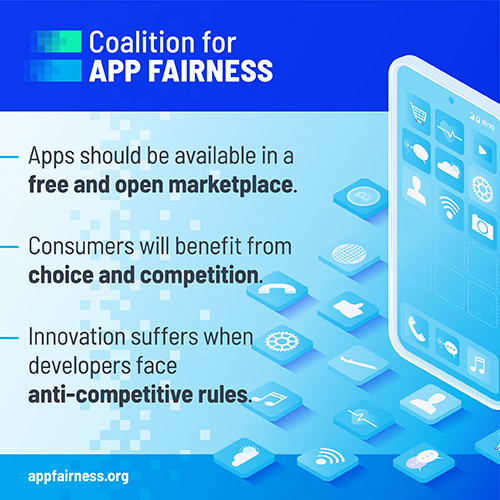With help from John Hendel
PROGRAMMING NOTE: Morning Tech will not publish on Thursday, Nov. 26, and Friday, Nov. 27. We’ll be back on our normal schedule on Monday, Nov. 30.
Editor’s Note: Morning Tech is a free version of POLITICO Pro Technology’s morning newsletter, which is delivered to our subscribers each morning at 6 a.m. The POLITICO Pro platform combines the news you need with tools you can use to take action on the day’s biggest stories. Act on the news with POLITICO Pro.
— ‘Political Playlist’: Emerging tech critic Rep. Alexandria Ocasio-Cortez may have been the youngest woman ever elected to Congress, but next year’s crop of young lawmakers — breaking ceilings with some “firsts” of their own — are already sporting tech priorities.
— Parler’s new grievance: The growing social media site has long amplified conservative complaints about bias on mainstream platforms. Now the upstart has a new allegation: that its big rival platforms are anti-competitive.
— Rip and replace, commence: House leaders are asking the FCC to update telecom carriers on plans to pay for the removal of Chinese telecom gear from America’s internet infrastructure.
IT’S TUESDAY. WELCOME TO MORNING TECH! I’m your host, Alexandra Levine.
Got a news tip? Write me at [email protected], and follow @Ali_Lev on Twitter and @alexandra.levine on Instagram. An event for our calendar? Send details to [email protected]. Anything else? Team info below. And don’t forget: Add @MorningTech and @PoliticoPro on Twitter.
TECH WATCH: THE YOUNGEST NEW MEMBERS OF CONGRESS — With the election in our rearview mirror and the transition (finally!) underway, a new tech platform is raising awareness about the youngest incoming members of Congress — several of whom have tech agendas or ties to the industry. Political Playlist has been tracking under-45s in the House and the Senate to highlight “the next generation of politicians” that the organization says are often overlooked.
16 percent of congressional lawmakers are under the age of 45 — and 4 percent, under the age of 35 — according to Political Playlist. (The group noted that while the average American is 37 years old, the average age of House lawmakers is 57, while the average in the Senate is 62.) The 116th Congress was one of oldest in history, and the 117th won’t be much of a departure.
But 11 new lawmakers under the age of 45 were elected to the 117th Congress, Political Playlist points out, joining other under-45s leading on tech issues, including Silicon Valley Rep. Ro Khanna (D-Calif.) and Sen. Josh Hawley (R-Mo.). Here’s what to know about some of the newcomers’ views on and ties to tech. (We’ve already seen how Rep. Alexandria Ocasio-Cortez is establishing a presence on the tech scene.)
— Republican Madison Cawthorn, who at 25 will become the youngest member of Congress after winning in North Carolina’s 11th District, has already positioned himself as a crusader against tech market power and alleged anti-conservative social media bias. “I am going to be very focused on exposing big tech’s agenda to suppress speech and create monopolies,” he wrote Thursday on Twitter. “Their oligopolies and robber baron behavior will soon come to an end.” During the RNC, he warned that “political forces want to usher in the digital dark ages, a time of information without wisdom, and tribalism without truth.” Cawthorn, who is active on Parler, has also been criticized on the left for incendiary rhetoric online.
— Republican Nancy Mace, who pulled off something of a surprise victory in South Carolina’s 1st District and was the first woman to graduate from The Citadel, has also planted a flag in the tech bias debate. “Silicon Valley and the liberals at Facebook have picked a side — and it’s not ours!” she wrote on Facebook ahead of Election Day, claiming that the platform had unexpectedly pulled her ads down just days before Nov. 3. “Take a good look because this is the future under Democrat rule — a future where Facebook decides what is and what isn’t speech.”
— Democrat Sara Jacobs, who won in California’s 53rd Congressional District, is the granddaughter of tech billionaire Irwin Jacobs, founder and former chairman of the telecom giant Qualcomm (h/t Teddy Schleifer). She was appointed to the House Democratic Steering and Policy Committee.
— Democrat Cori Bush, who won Missouri’s 1st Congressional District to become the state’s first Black congresswoman, made economic justice a top campaign issue, taking aim this month at the billionaires who’ve become even bigger billionaires during the pandemic. Though she didn’t name names, several of them are big tech CEOs including Amazon’s Jeff Bezos and Facebook’s Mark Zuckerberg.
— We’ll be tracking the tech agendas of the other youngest, newly-elected members of Congress in the coming months. They include Democrats Ritchie Torres and Mondaire Jones of New York, who were elected the first openly gay Black members of Congress; Jamaal Bowman of New York; and Jake Auchincloss of Massachusetts. It also includes Republicans Jake LaTurner of Kansas, Peter Meijer of Michigan and Lauren Boebert of Colorado.
And speaking of Parler…
PARLER VS. FACEBOOK VS. PARLER — As the FTC gears up to lodge a major antitrust lawsuit against Facebook — any day now — a newer rival is ratcheting up competition complaints about the social network. Parler, a mainly conservative social media site that has become increasingly well-known in the wake of the election, has been most outspoken on free speech issues, billing itself as an unbiased, little regulated alternative to more mainstream platforms like Twitter and Facebook. But in what appears to be a fresh grievance from Parler, its chief operating officer said Monday that Facebook is using its outsize market share to box out competitors.
— “Facebook’s monetization model depends on extracting every piece of personal data, and using it to dehumanize, commoditize and monetize all of us,” said COO Jeffrey Wernick in a statement accusing the social network of harmful surveillance practices. “They misappropriate tremendous value from us… In doing so, they prevent competitors with different monetization models—models that don’t depend on ‘data strip-mining’—from entering the market.”
— But Parler has a ton of its own issues — including accusations that it has become a forum for bigotry — and as its audience grows, so do its critics. Advocacy group ParentsTogether issued a warning to its roughly 2.5 million members on Friday urging parents to keep children and teens under age 18 off the platform and check their kids’ devices to make sure the app hasn’t been installed. “Parents should know that due to Parler’s dangerous combination of an extremist user base and almost non-existent moderation of content, hate speech, incitements to violence and disinformation about the election results are pervasive on the platform,” the missive says. Parler’s terms of service outline age requirements, but signing up does not require any proof.
The Simon Wiesenthal Center, a human rights NGO, also released a report last week detailing some of that extremism, racism and anti-Semitism on the platform. Parler did not respond to POLITICO’s request for comment on how it plans to address such content. But the center’s director of global social action, Rabbi Abraham Cooper, said that when they submitted the material to Parler for review, they were told by senior officials from the company that the site is committed to making room for all speech.
— Parler was installed more than 5 million times between Election Day and this week, according to data analytics firm SensorTower. (The day after Joe Biden was declared the winner, Parler for the first time became the top free iPhone app in the U.S. App Store.) Even so, experts doubt it will ever gain the traction — and the audience — that Facebook has, as we’ve reported in MT.
BROADBAND LAND: HOUSE LAWMAKERS EYE TELECOM SUBSIDIES — House Energy and Commerce leaders Frank Pallone (D-N.J.) and Greg Walden (R-Ore.) wrote to the FCC on Monday saying that the agency should begin providing clarity to small telecom carriers about a proposed subsidy program to rip out and replace network gear from China’s Huawei and ZTE, even though that program hasn’t been funded yet. There’s “demonstrated bipartisan and bicameral support for doing so,” the lawmakers told the FCC, which is voting in December on these rip-and-replace subsidy rules.
— Meanwhile, several House E&C Republicans are asking the Government Accountability Office for an audit of the Agriculture Department’s ReConnect pilot program, which entails hundreds of millions of dollars in subsidies to build out rural broadband.
— And the dish on DISH: The other big FCC item you won’t want to miss is the agency’s newly released order affirming that Dish Network did, in fact, control two companies known as SNR Wireless LicenseCo and Northstar Wireless that bid in an earlier airwaves auction. Dish’s control renders these bidders ineligible for about $3.3 billion in small business bidding credits they initially sought (although they don’t have to pay this back given they defaulted on 197 licenses, according to the FCC). Democratic FCC Commissioner Geoffrey Starks, who is about to be in the agency’s majority, said the case shows the FCC must do better with its small business bidding rules. “Congress has made it clear that diversity among Commission licensees is critical,” Starks said in his concurrence.
Sen. Dianne Feinstein will step down as the top Democrat on the Senate Judiciary Committee in the next Congress, POLITICO reports. … The international Mixed Reality Sports Association has launched. … Transition watch: Here are the national security leaders announced in Biden’s first wave of Cabinet nominations.
ICYMI: “FCC nominee Nathan Simington reached out to Fox News this summer in an attempt at ‘engaging’ host Laura Ingraham to support President Donald Trump’s quest to make it easier to sue social media companies,” John reports.
Across the pond: “Should platforms like Facebook and Instagram be able to scan for evidence of child sexual abuse and grooming online? That question is at the heart of an explosive debate in Europe about online privacy that has roped in everyone from actor-turned-tech investor Ashton Kutcher to the EU’s top privacy regulator and observers as far afield as Australia,” POLITICO’s Nicholas Vinocur reports.
A new role for machine learning: “Can an Algorithm Prevent Suicide?” via NYT.
Government hails rides with Uber, Lyft: “Uber and Lyft have been awarded a federal contract worth up to $810 million to offer their ride-hail services to public agencies and their more than 4 million employees and contractors across the country,” Reuters reports.
You’ve got (Oval Office) mail: Intel CEO Bob Swan wrote a letter to President-elect Biden urging him to make technology a priority — including investing in digital infrastructure, a high-tech and STEM-adept workforce, and innovations to fight the pandemic.
Tips, comments, suggestions? Send them along via email to our team: Bob King ([email protected], @bkingdc), Heidi Vogt ([email protected], @HeidiVogt), Nancy Scola ([email protected], @nancyscola), Steven Overly ([email protected], @stevenoverly), John Hendel ([email protected], @JohnHendel), Cristiano Lima ([email protected], @viaCristiano), Alexandra S. Levine ([email protected], @Ali_Lev), and Leah Nylen ([email protected], @leah_nylen).
TTYL.







